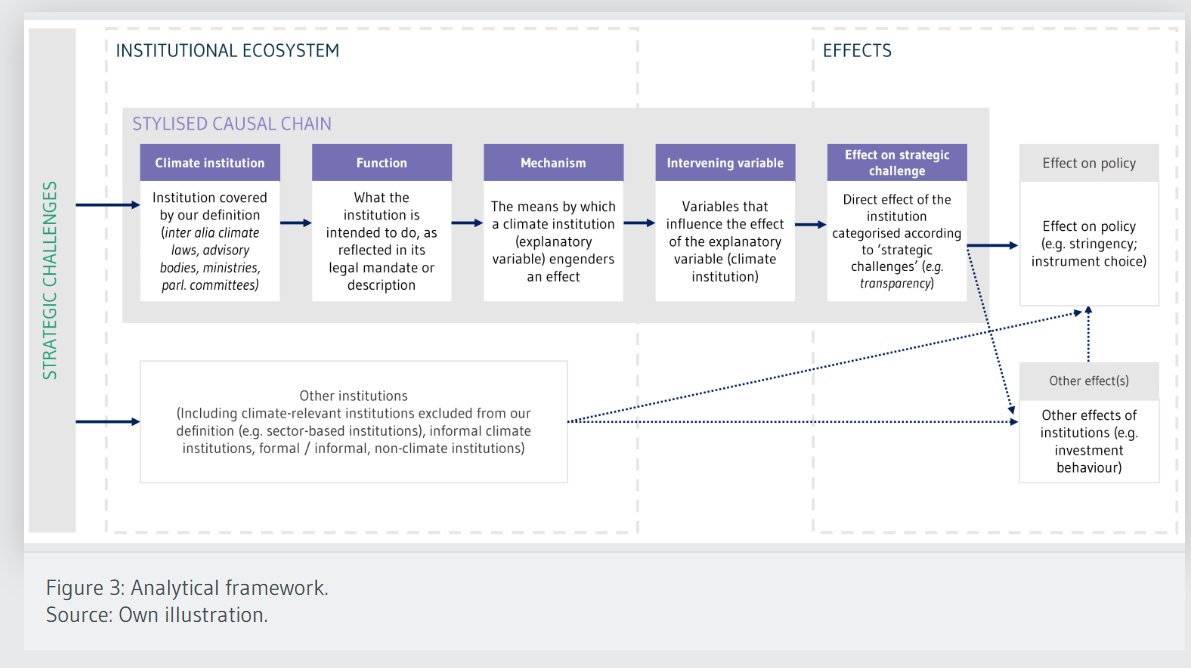Indeed - this seems to be an instance of autocratic learning. Fico and his cronies seem to have learned from Orbán that EU membership, including generous EU funds, are compatible with democratic backsliding and high FDI inflows, driven by multinationals. For more, see 👇
https://twitter.com/KimLaneLaw/status/1821244349331739087
Let me elaborate on 3 points.
1⃣How we got here and why this is an instance of autocratic diffusion
In the table below I summarise the literature on the strategies Orbán has employed to foster the consolidation of his regime. Many of these strategies are familiar to those
1⃣How we got here and why this is an instance of autocratic diffusion
In the table below I summarise the literature on the strategies Orbán has employed to foster the consolidation of his regime. Many of these strategies are familiar to those

studying democratic backsliding in the CEE region and in Slovakia in particular. See, for instance, this ...
https://twitter.com/J_Jaraczewski/status/1767844241344995525
The attack on media freedom is a well-studied phenomenon in the Hungarian context. See this brilliant @ecmaEditors paper econometricsociety.org/publications/e…
For more background:
Bakke, Elisabeth, and Nick Sitter. 2022. ‘The EU’s Enfants Terribles: Democratic Backsliding in Central Europe since 2010’. Perspectives on Politics 20(1): 22–37. cambridge.org/core/journals/…
Bakke, Elisabeth, and Nick Sitter. 2022. ‘The EU’s Enfants Terribles: Democratic Backsliding in Central Europe since 2010’. Perspectives on Politics 20(1): 22–37. cambridge.org/core/journals/…
Steuer, Max. 2024. ‘Heyday of Autocratic Legalism in Slovakia’. @Verfassungsblog. verfassungsblog.de/heyday-of-auto…
Čuroš, Peter. 2024. ‘Hundred Days of Fico IV Administration’. @Verfassungsblog verfassungsblog.de/fico-iv/
For some suggestive evidence on "autocratic" diffusion:
@panyiszabolcs and Lukáš Diko. 2024. ‘How the Slovak Leader Asked for the Kremlin and Orbán’s Help (and Got It)’. . .VSquare.org
vsquare.org/slovakia-elect…
@panyiszabolcs and Lukáš Diko. 2024. ‘How the Slovak Leader Asked for the Kremlin and Orbán’s Help (and Got It)’. . .VSquare.org
vsquare.org/slovakia-elect…
2⃣ EU funds and the attack on the anti-corruption agency
Like its Visegrád counterparts, Slovakia relies heavily on EU funds, which accounted for more than 10% of its GDP in 2023. For these funds to serve autocratic ends, it is imperative that the workings of the
Like its Visegrád counterparts, Slovakia relies heavily on EU funds, which accounted for more than 10% of its GDP in 2023. For these funds to serve autocratic ends, it is imperative that the workings of the
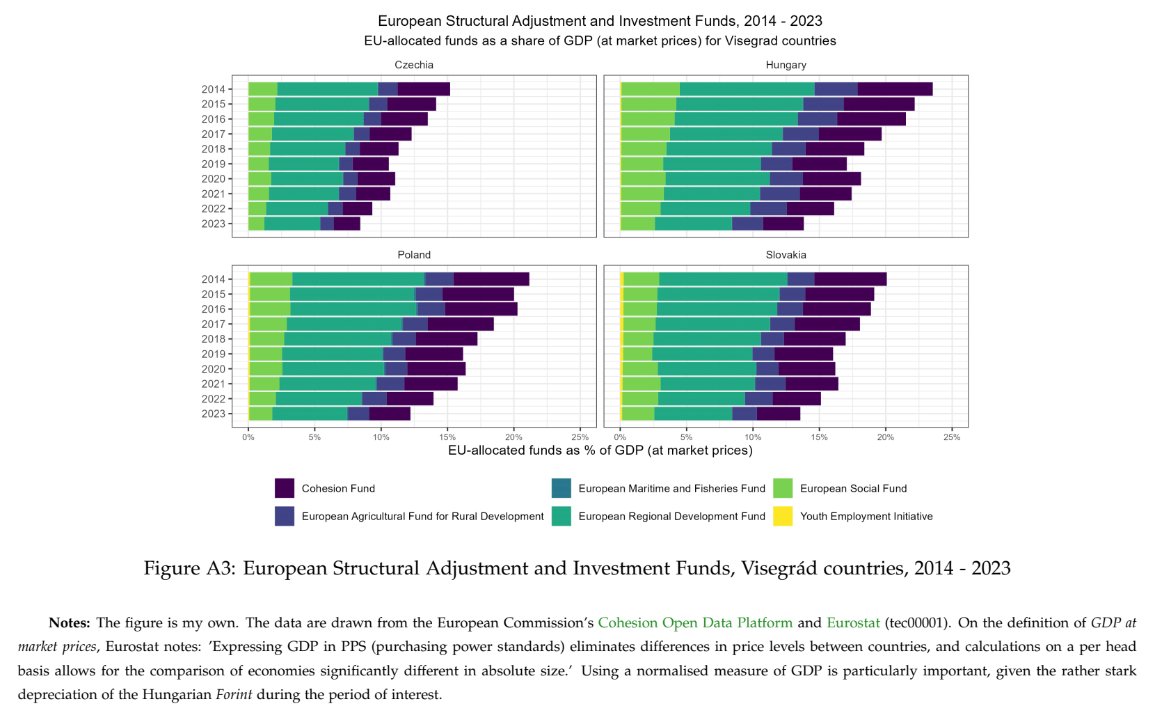
clientelistic machine are not disrupted by anti-corruption concerns. This is an important part of the explanation for the Slovakian government's latest gambit.
Once again, this is very similar to the Hungarian case. There is strong evidence that Orbán has rigged
Once again, this is very similar to the Hungarian case. There is strong evidence that Orbán has rigged
the procurement system.
Szucs, Ferenc. 2024. ‘Discretion and Favoritism in Public Procurement’. @JEEA_News 22(1): 117–60. doi.org/10.1093/jeea/j…
Szucs, Ferenc. 2024. ‘Discretion and Favoritism in Public Procurement’. @JEEA_News 22(1): 117–60. doi.org/10.1093/jeea/j…
The strategic logic behind the use of EU funds for democratic erosion / autocratic consolidation is summarised here.
3⃣Why do multinationals matter for FDI for wanna-be competitive autocrats?
It is worth noting that Slovakia's dependence on multinationals has grown in
3⃣Why do multinationals matter for FDI for wanna-be competitive autocrats?
It is worth noting that Slovakia's dependence on multinationals has grown in
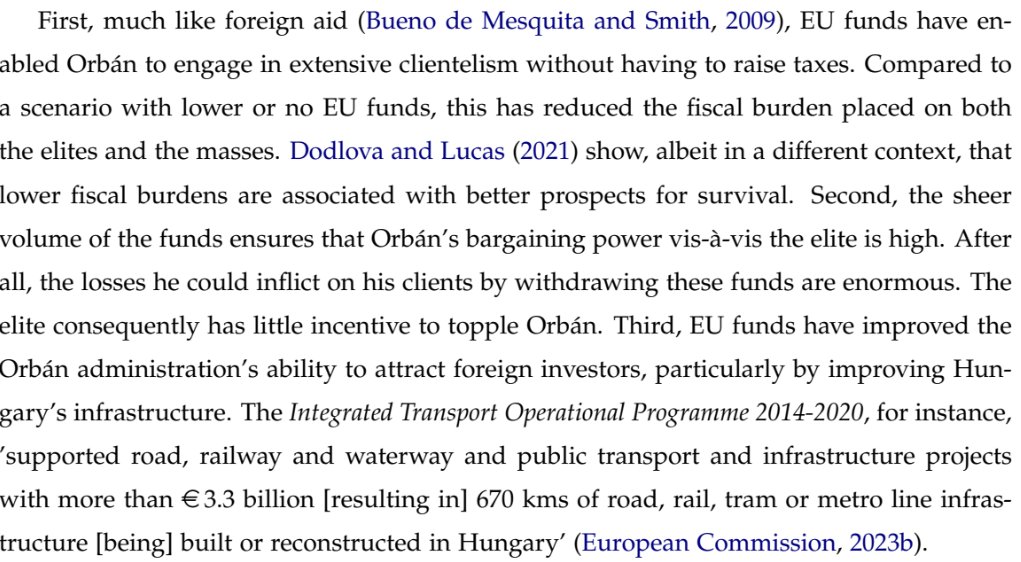
recent years. There are a couple of nice papers on this:
Ban, Cornel, and Dragoș Adăscăliței. 2022. ‘The FDI-Led Growth Models of the East-Central and South Eastern Periphery’. In Diminishing Returns: The New Politics of Growth and Stagnation, eds.
academic.oup.com/book/44862/cha…

Ban, Cornel, and Dragoș Adăscăliței. 2022. ‘The FDI-Led Growth Models of the East-Central and South Eastern Periphery’. In Diminishing Returns: The New Politics of Growth and Stagnation, eds.
academic.oup.com/book/44862/cha…
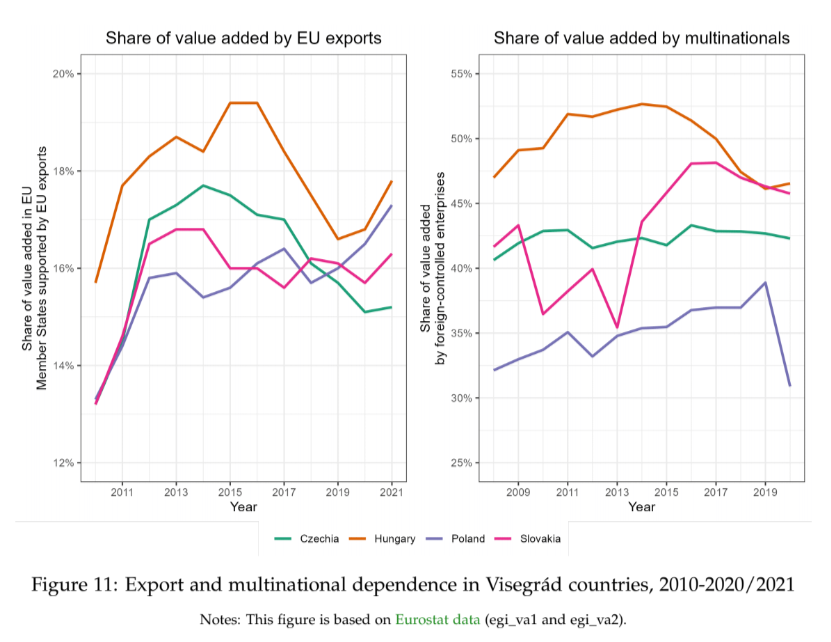
Lucio Baccaro, Mark Blyth, and Jonas Pontusson.
@bilyanakpetrova, and Aleksandra Sznajder Lee. 2024. ‘Integrating with the Global Economy: The Evolution of the Export Profiles of the European Union’s Eastern Periphery (2000–2021)’. tandfonline.com/doi/full/10.10…
@bilyanakpetrova, and Aleksandra Sznajder Lee. 2024. ‘Integrating with the Global Economy: The Evolution of the Export Profiles of the European Union’s Eastern Periphery (2000–2021)’. tandfonline.com/doi/full/10.10…
The strategic value of multinational-dominated FDI is that this helps would-be autocrats solve the usual commitment problem they face vis-a-vis investors -- their inability to credibly promise to respect the latter's (property) rights. 
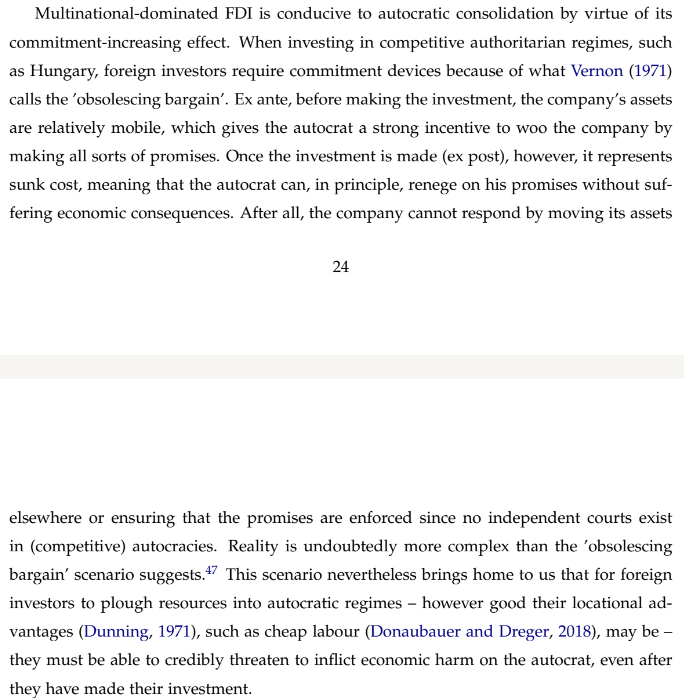
This argument is by no means original.
Johns, Leslie, and Rachel L. Wellhausen. 2016. ‘Under One Roof: Supply Chains and the Protection of Foreign Investment’. @apsrjournal 110(1): 31–51. cambridge.org/core/journals/…
Johns, Leslie, and Rachel L. Wellhausen. 2016. ‘Under One Roof: Supply Chains and the Protection of Foreign Investment’. @apsrjournal 110(1): 31–51. cambridge.org/core/journals/…
The only twist I'd add is that the commitment-boosting effect of multinational-dominated FDI is cp stronger when these companies are (i) headquartered in countries that are important export markets for Slovakia, and (ii) should matter more to companies operate in sectors 
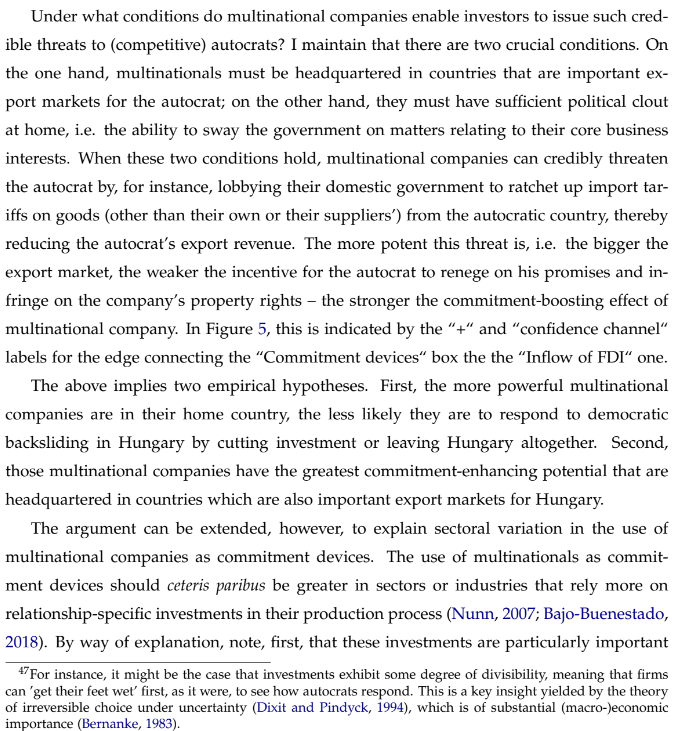
where relationship-specific investments are more important for production.
As in Hungary, the single most important export market for Slovakia is Germany, meaning that German multinationals will have the most clout over the Fico government. To prevent further backsliding in
As in Hungary, the single most important export market for Slovakia is Germany, meaning that German multinationals will have the most clout over the Fico government. To prevent further backsliding in

Slovakia (and learn from the Orbán debacle), much depends on two entities: the European Commission and the German government / German multinationals.
I'm not particularly optimistic that either the EC or the Germans will invest much political capital
tandfonline.com/doi/full/10.10…
I'm not particularly optimistic that either the EC or the Germans will invest much political capital
tandfonline.com/doi/full/10.10…
into Fico and his loyalists. For the EC, see e.g. @rdanielkelemen's papers -- as well as the work by @ProfPech, @KimLaneLaw, and @Tom_Pavone. For the German government: Quite frankly, the political agenda in Germany is full as it as at the moment, with the coalition's current
budget imbroglio, the upcoming state elections, and the (alas) contentious issue of supporting 🇺🇦.
Despite my political pessimism, let me end on an epistemically optimistic note: the above illustrates the importance of comparative politics.
Despite my political pessimism, let me end on an epistemically optimistic note: the above illustrates the importance of comparative politics.
https://x.com/edenhofer_jacob/status/1774787712496595255
For more references on the EU's efforts (or lack thereof) to rein in democratic backsliding, see
https://x.com/edenhofer_jacob/status/1818743597417578544
@threadreaderapp unroll
• • •
Missing some Tweet in this thread? You can try to
force a refresh






